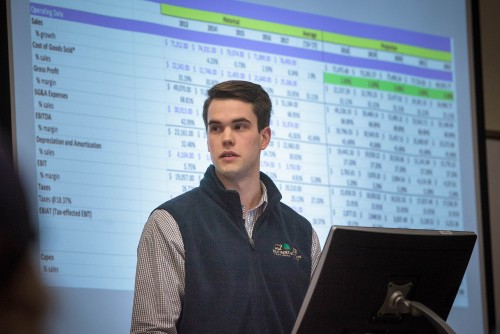“Finance is not merely about making money. It's about achieving our deep goals and protecting the fruits of our labor. It's about stewardship and, therefore, about achieving the good society.” –Robert Shiller, (Finance and the Good Society, 2012)
Why study Finance at Sewanee?
Finance majors at Sewanee develop the knowledge and skills necessary to examine how individuals, businesses, and governments make financial decisions. The major is rooted in a robust foundation in economics, the discipline from which finance emerged. Students complete core courses in economics, corporate finance, investments, security analysis, and ethics, while also expanding their knowledge in electives in real estate finance, international finance, energy economics, game theory, and financial derivatives. Students develop critical-thinking skills and have hands-on opportunities to examine real-world financial data. Students completing this major will be well prepared for the Level I Chartered Financial Analyst exam or for graduate work in finance, economics, public policy, business, and law.







